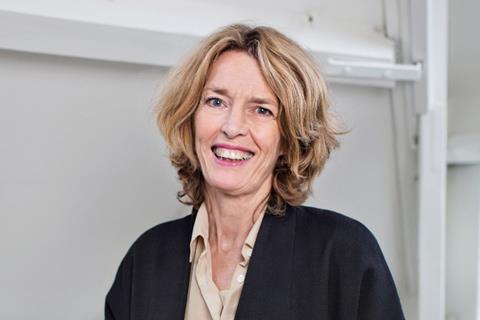
Adriek van Nieuwenhuijzen, head of IDFA Industry, has been overseeing IDFA’s industry activities since 2007.
As IDFA’s Forum prerpares to opens on Sunday November 12, running until November 15, van Nieuwenhuijzen reflects on the success of the event which this year attracted a record 800 submissions and addresses some of the big issues facing the documentary sector.
You are hosting a talk at the festival called LIvelihood in the Documentary Industry on November 13. Is the question of being able to make a living through documentary more pressing now than ever before?
It’s a typical joke among documentary people - you never get rich from documentary. We all know that. Documentary filmmakers and producers are expected to do thorough investigation and make author-driven films - but you don’t do that in an afternoon. That is never really valued. The appreciation for documentary in big festivals is fantastic but, at the same time, you see people can hardly make a living.
A related question: new UK trade body Documentary Film Council talked recently about the “existential threat” facing independent documentary with the difficulties in securing production funding, theatrical distribution and broadcast slots? Would you agree that the indie sector is in crisis?
It’s not that broadcasters are totally absent. They typically produce in their own countries. But compared to many years ago, it’s really less. Also, they do not take risks. The really author-driven documentary is hard to find on channels. Theatres and the streamers only do documentaries when it is super- sellable. That means it is a few films a year. It’s fantastic that these films you can find them on the platforms and in the cinemas but it’s a drop in the ocean when you see how many fantastic films are being made.
Big US companies including National Geographic and Netflix are back at IDFA. Do you feel they’ve had a positive effect on the doc industry?
I am very pleased and happy that Nat Geo and Netflix are participating and that they take meetings. For us, it is a good sign that they are interested in some projects. [But] it seems they are changing the things they acquire and they want to produce. Their editorial lines are not always clear, let’s put it that way. It gave a big boost within the documentary industry that the streamers were there. Everybody said ‘yea, they are going to save our lives.’ Well, that didn’t happen. Over the years, we learned they do great stuff. They have Flee or Eternal Memory, films we love, but so few.
If you want to work with them it can be a very successful collaboration but I think filmmakers and producers realise now not to expect the whole world from the streamers. I think that is a very healthy development. It is a big reality check.
What changes have you made to the industry programme this year? Are there any new initiatives?
What is important to us is diversity and inclusion. We continuously strive for that. We reach out to filmmakers and producers in regions where it is difficult to come to Amsterdam because of cost of flights or visa. What we’ve been doing for years but now more rigorously is to give people discounts on passes, pitch fees and that kind of thing. In the Rough Cut section, we have added six projects from Ukraine to the normal slate because we know the pressure they are [under] in terms of finance.
How would you describe this year’s Forum selection?
I have to say this year for the first time we have less than 50% of female directors. I don’t know why that is. It’s 46% [female]. Normally, it was more female-driven but it’s different this year. In terms of regional spread, we have more projects from Africa. We have a New Zealand project [Justin Pemberton’s The Death Of Death, about AI and eternal life] which is very rare - and we are very proud of that. We have again a very strong slate from Latin America and strong US films
There seem to be several “undisclosed projects” in Forum selection. Does this suggest filmmakers are facing extra challenges as far as censorship and their own safety are concerned?
Indeed, it is for many filmmakers from different parts of the world, very hard to do their work. There is censorship and violence. Some filmmakers really feel threatened and that not disclosing projects is the best way to keep working on their projects. I am not going to say more.
Do you feel that the system of IDFA Forum pitches still works as well as ever? Does it need to be updated given changing profile of decision makers (declining influence of broadcasters), technological innovations etc? Or do attendees still savour the traditional format?
People within the industry realise that not every project needs to be presented this way. But, having said that, we got close to 800 submissions - that’s a record. There are many ways to explain this. I see this as a sign that producers value the forum as an effective place to do business and explore potential collaborations.
And we have more projects from Africa, Asia and Latin America. People recognise this is a good place to come to meet with a global community and a very effective way to find partners.
Are any Palestinian and Israeli projects being pitched?
There is indeed a project in the Forum that is set up as a Palestinian-Israeli coproduction [Isser’s House by Tomer Heymann]. It is a film set in Hebron dealing with a non-violent Palestinian activist trying to protect his house on the West Bank but who is threatened constantly by the colonists. We happened to select that long before this whole tragedy started.
The autumn is very crowded with documentary events - Doc Lisboa, DokLeipzig, Ji.hlava and, DOC NYC to name a few. IDFA is the biggest and most established but does it still make sense to have so many festivals so close to each other?
All these festivals are also festivals for their local audience. We are catering massively to our local Dutch audience . All these festivals have also an industry component [but] I think they all cater to different people. They all have their own niche.
What practical steps is IDFA itself taking to ensure the doc industry engages with sustainability?
There’s a huge contradiction. We consider it important that people get together in Amsterdam. People fly in. Of course, we really stress on the fact that people within Europe not so far from Amsterdam come by train. Paris, London, Berlin - these cities are well connected and so people [from there] are asked to travel by train. We’ve served vegetarian food - and for seven or eight years already we have been meat free.
This year for the first time we have a “zero measurement” for the festival so we can see where we stand now. We are the first festival that does that in the Netherlands. You really see what you do, the effects in terms of [carbon] footprint, and can see what you can do next year to improve that.


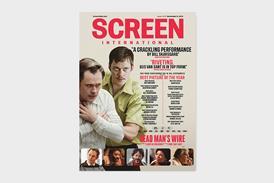
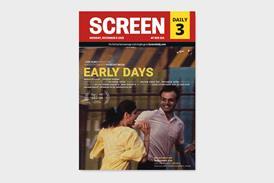



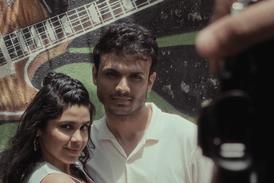





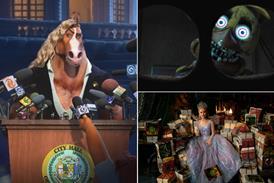
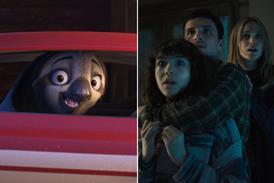

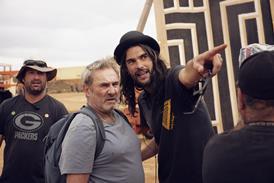







No comments yet